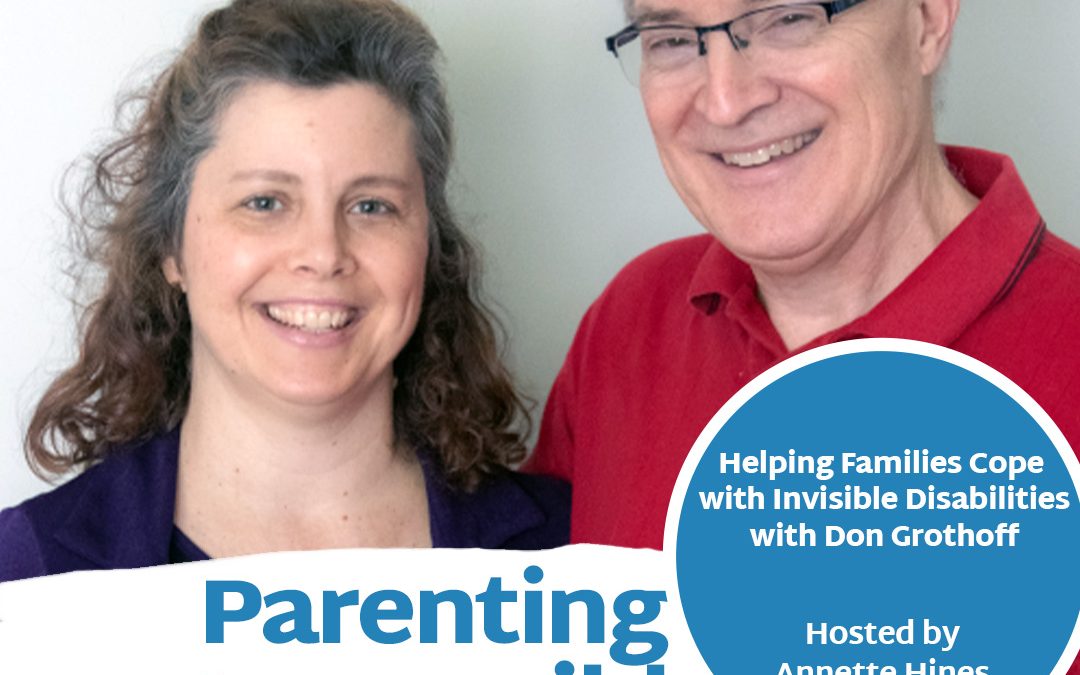Most assistance offered to disabled children and adults is for the disabled individual. Not everyone may realize that their families may need assistance as well. Parents and siblings can suffer from anxiety, fear, stress, and a host of other issues related to their loved one’s disability.
In this episode, Annette speaks with Don Grothoff, a behavior transformation specialist, family coach and father of three about his personal experience dealing with “invisible disabilities” within his family and how they developed a program to help other families like theirs.
Invisible Disabilities
Invisible Disabilities are those disabilities and disorders that show no outward or physical signs. They can still limit or challenge a person’s movements and/or senses. This can lead to misunderstandings and judgments from those that can’t immediately see a disability.
Don and his wife Gina, who is an occupational therapist, had a drastic change in their lives one night. One of their daughters abruptly displayed signs of sudden onset OCD (Obsessive Compulsive Disorder), an invisible disability. Their once happy, bubbly daughter suddenly became a fearful, highly anxious child at the flip of a switch. While she appeared physically fine on the outside, mentally she was distressed and suffering. They spent years researching the disorder, trying everything they could to get their daughter to a manageable point. Don and Gina’s own anxiety and depression levels became so high they almost divorced.
The Turning Point
The turning point came after Don had a heart attack. He realized he wanted to do something he was more passionate about and to help others in similar situations. He wanted to let other families know that they are not alone when dealing with loved ones with invisible disabilities. Don and Gina began Focused Healthy Family which developed programs to help the family as a whole, understand and communicate with each other. Don says, “our idea here is to be able to help other families that are going through that (anxiety)”. They want to be a resource for people to help guide them through their issues revolving around their disabled loved one.
Don Lists His Three Tips For Dealing With Anxiety and Invisible Disabilities:
- Pay attention to the whole family, parents and siblings can be suffering too
- Take care of yourself
- Ask for help if you need it
Don also has his own podcast (which Annette will be on this summer) called The Invisible Wheelchair where he discusses anxiety, OCD and other invisible disabilities.
Listen to the full episode here!
Annette Hines has been practicing in the areas of Special Needs, Elder Law, and Estate Planning for more than 20 years. Ms. Hines brings personal experience with special needs to her practice and podcasts as the mother of two daughters, one of whom passed away from Mitochondrial disease in November 2013. This deep, personal understanding of special needs fuels her passion for quality special needs planning and drives her dedication to help others within the special needs community.

